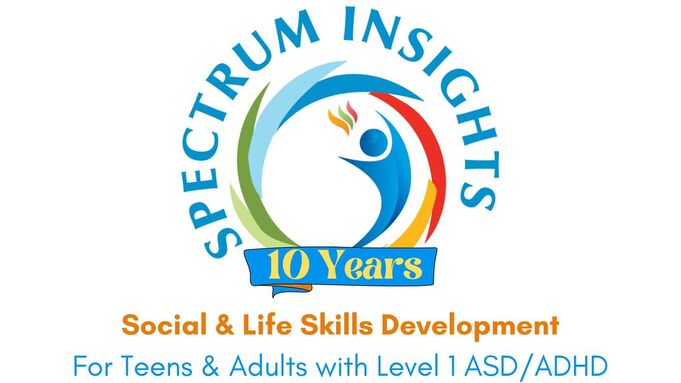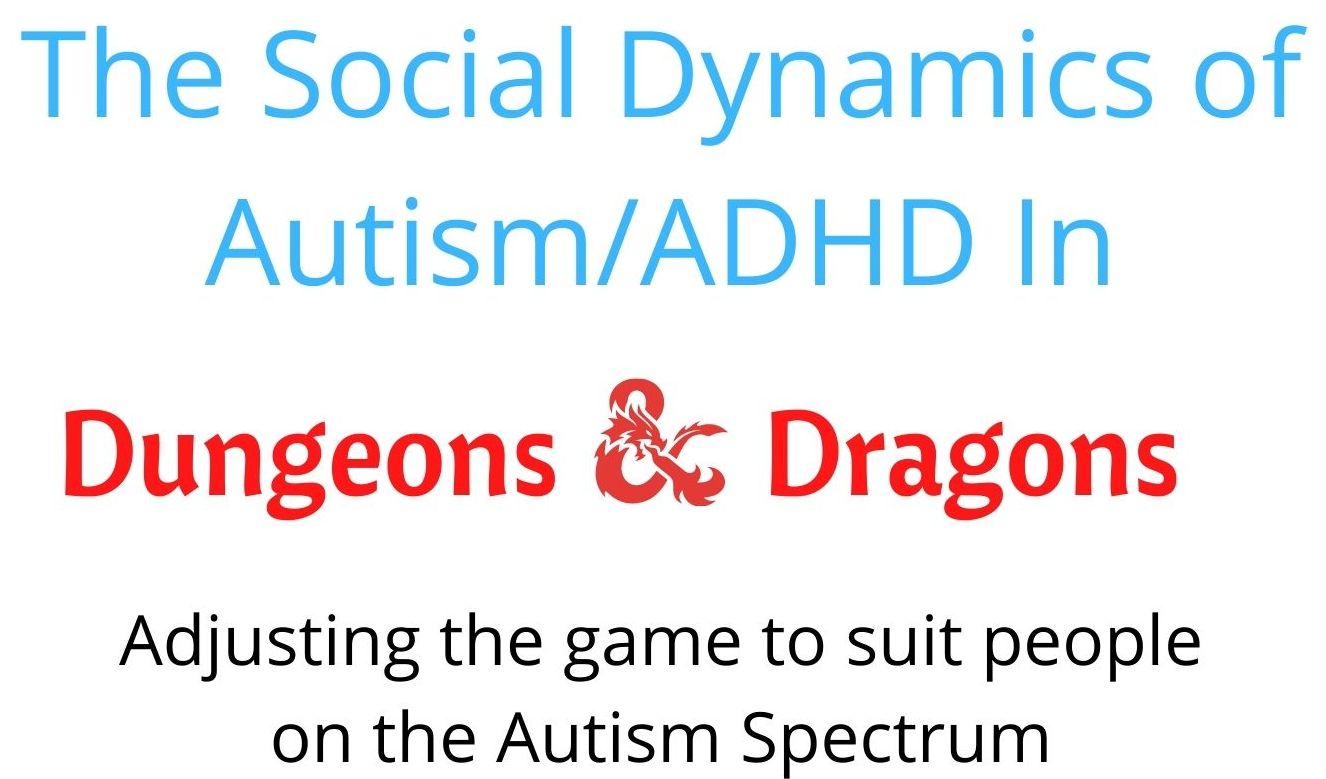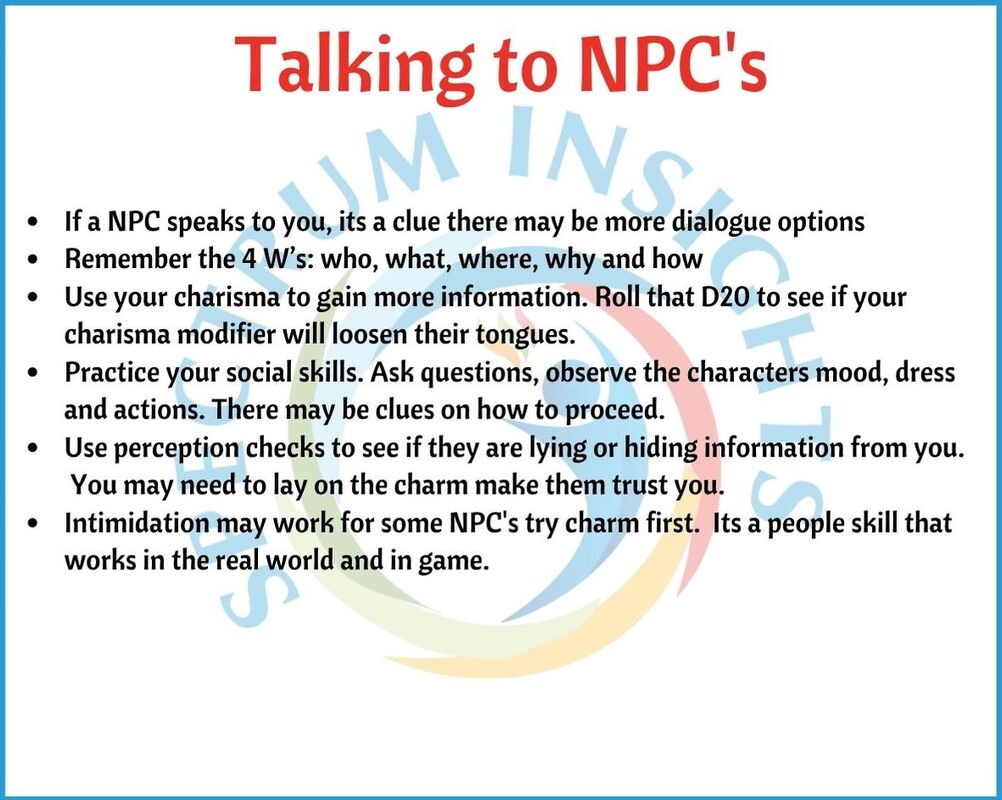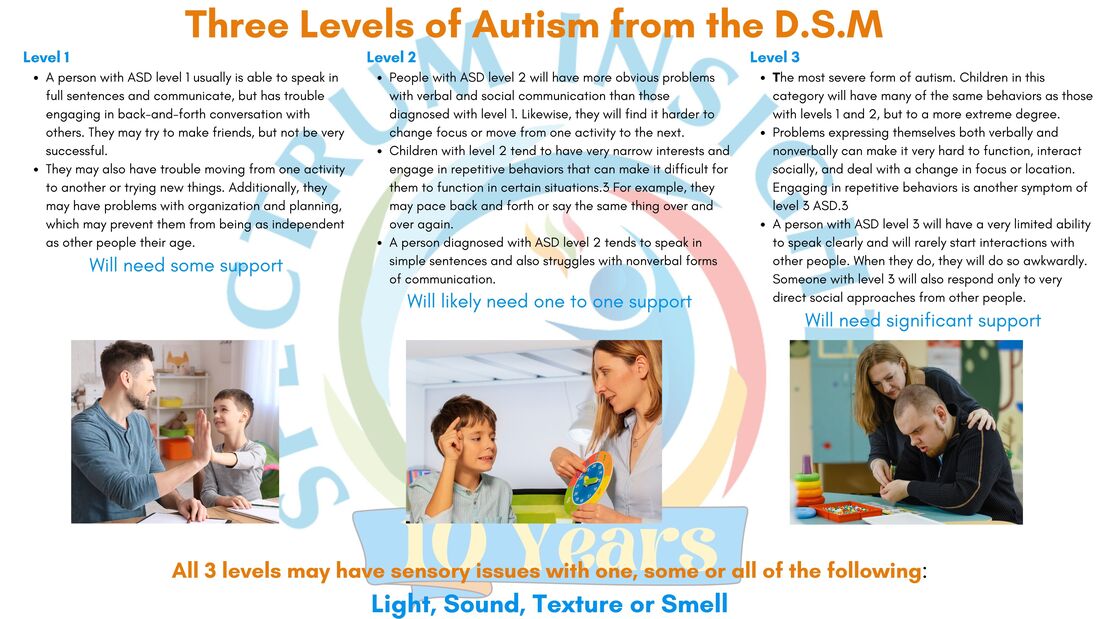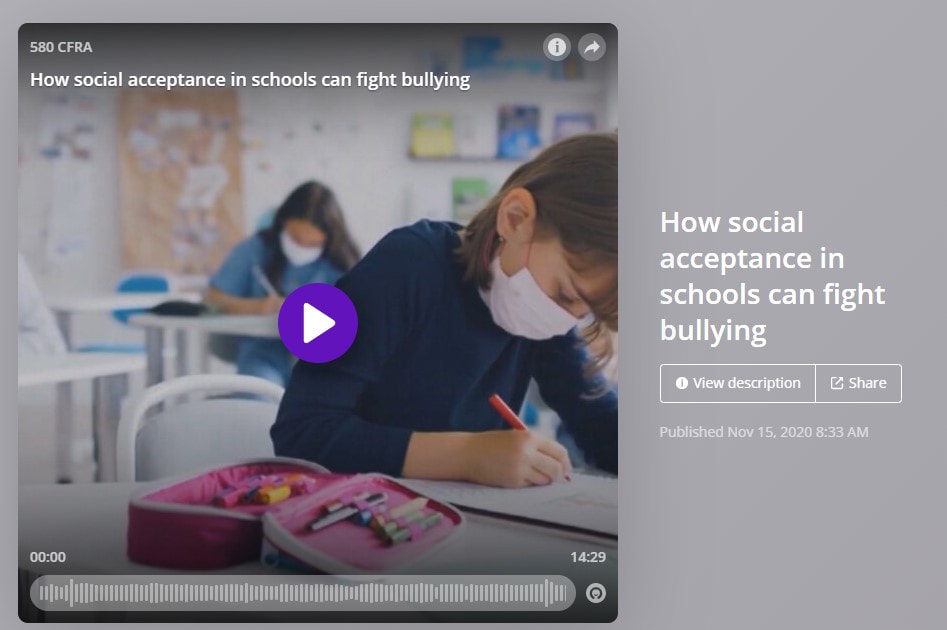Spectrum Insights has been running a D&D program where the focus is on teaching social skills to ASD/ADHD teens and young adults. The goal is to not only help them learn social skills in a fun way, but be able to join existing groups w/ peers and understand the social dynamics of game play. To date we have been focussing on social skills around the table. Primarily how to collaborate, communicate, listen, turn taking and not over sharing. All great skills to master. After a few months I noticed a great deal of clues in campaigns were being overlooked. I chalked this up to inexperienced players. To solve this, I would step out of my Dungeon Master role to give some advice and better understand the game. It helped when it came finding traps, looking for items, investigating objects but not for people or “Non Player Characters”. When a NPC in the game offered a clue, hints or where further social interaction would uncover a way to move the story forward, I would have to force the dialogue. The students were not delving into potential dialogue options. I did consider that my Dungeon Mastering may need work or I was not allowing the players to explore the game in their own unique way. I believe they are indeed exploring the D&D world in their own unique way and its through the Lens of ASD/ADHD.
Students with ASD and many w/ ADHD have social challenges when it comes to curiosity about others. This is not just a general observation on my part:
DSM-5 Autism Diagnostic Criteria
- Deficits in using communication for social purposes, such as greeting and sharing information, in a manner that is appropriate for the social context.
- Impairment of the ability to change communication to match context or the needs of the listener, such as speaking differently in a classroom than on the playground, talking differently to a child than to an adult, and avoiding use of overly formal language.
- Difficulties following rules for conversation and storytelling, such as taking turns in conversation, rephrasing when misunderstood, and knowing how to use verbal and nonverbal signals to regulate interaction.
- Difficulties understanding what is not explicitly stated (e.g., making inferences) and nonliteral or ambiguous meanings of language (e.g., idioms, humor, metaphors, multiple meanings that depend on the context for interpretation).
In a game where storytelling moves the game forward, communication is key. My students enjoy both the action & story telling aspects of the game but need help when it comes in game dialogue involving NPC’s and each other.
I’ll give 3 short examples where students miss out by not furthering dialogue with NPCs:
- Dialogue may give a greater treasure. A NPC may whisper where hidden treasure is.
- NPC’s may give hints how to defeat a monster, share where there is hidden treasure, divulge a location or secrets to move the story forward.
- A NPC may prefer dialogue over fighting.
What can you do improve the game for your ASD/ADHD students
Do not think of the following as nagging, interrupting the game or stifling their imagination. Consider the following as an opportunity to practice their social skills in a fun setting. I encourage you to write out social reminders on cue cards, similar to spell or condition cards, this will benefit the group. At the end of this article there will be cue cards you can print off and cut out for your next D&D adventure.
1. Before sessions go over the game mechanics they need reminders of:
- Turn taking - Each person has their allotted time to speak. Without this, some students will dominate the conversation and quiet students are left unheard.
- Do not interrupt (this happens often). Raise your hand to interject or add to the story. This helps the more impulsive students wait their turn.
- Communicate as a team before action. Encourage the students to take 5 minutes to work out a plan. This way they can learn how to collaborate and solve problems as a group. This will also address the different play styles of the students. Some may prefer to rush in and fight, others may be more cautious. Remind them to utilize each other's abilities to help the group.
2. In game social tips:
If your ASD players miss out on social cues, they will need a lot of reminders.
- If a NPC speaks to you, its a clue there may be more dialogue options
- Remember the 4 W’s: who, what, where, why and how
- Use your charisma to gain more information. Roll that D20 to see if your charisma modifier will loosen their tongues.
- Practice your social skills. Ask questions, observe the characters mood, dress and actions. There may be clues on how to proceed.
- Use perception checks to see if they are lying or hiding information from you. You may need to lay on the charm to make them trust you.
- Intimidation may work for some NPC's try charm first. Its a people skill that works in the real world and in game. Intimidation should be saved for villains or very stubborn NPC’s who you suspect have more dialogue to offer.
Have fun, be creative and flexible in your next D&D adventure. Dont forget, there are opportunities here to teach some great new skills to your ASD/ADHD players!
- John Anderson
